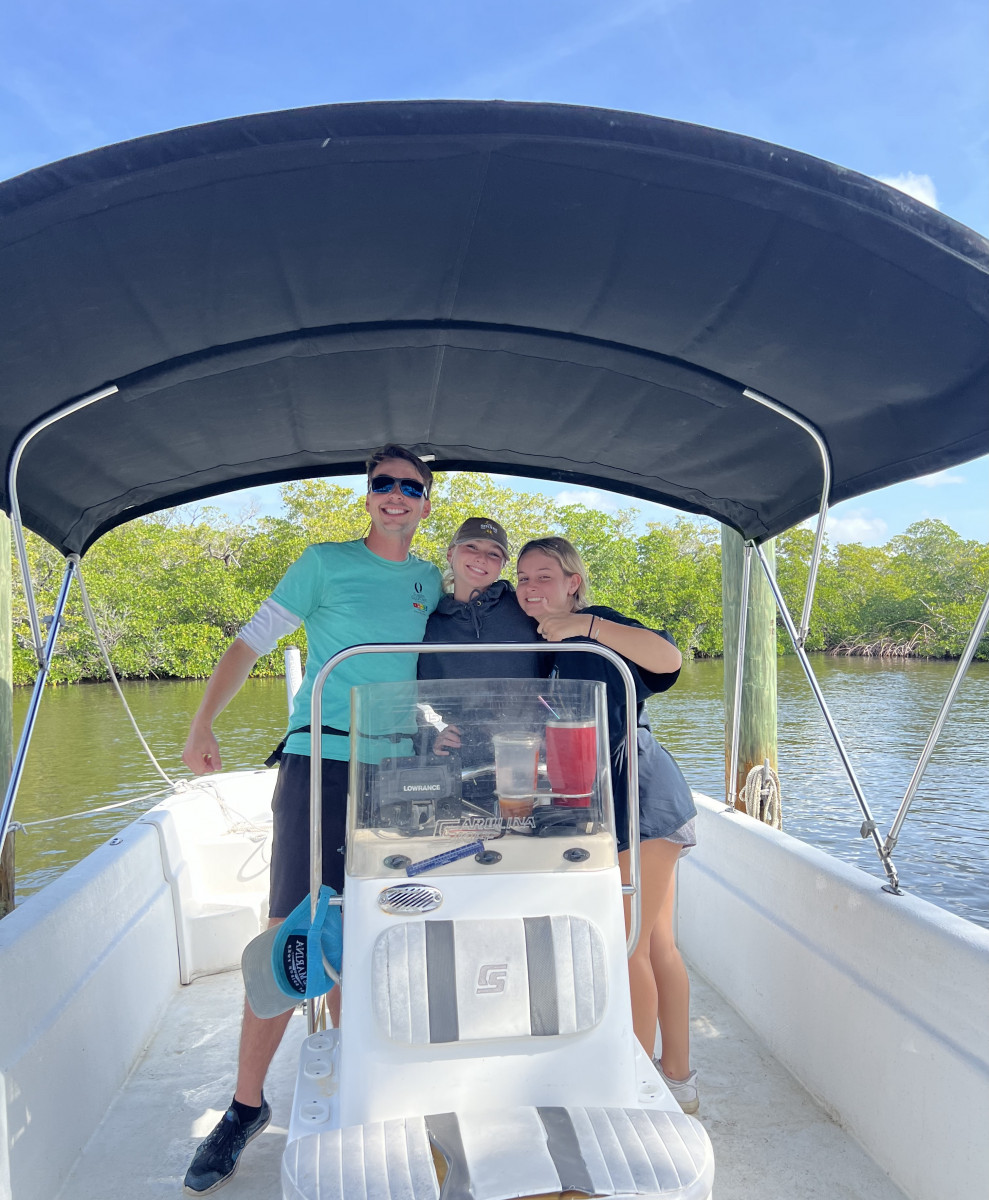Coastal areas are facing increasing threats from environmental degradation, and marine animals have been suffering more than ever before from the devastating consequences of water pollution. In an attempt to preserve Southwest Florida’s natural charm, local environmental groups are taking swift action to combat the increasing effects of water pollution. FGCU has taken an active role in sustainability, helping to increase awareness about the importance of environmental protection. Their conservation programs have also extended to high school education, giving students the ability to see scientific experiments in person.
AICE Marine Science students had the opportunity to visit the FGCU vester field station. They took a boat into Estero Bay to analyze water quality, complete hands-on scientific observations and draw conclusions about the current state of our ecosystems.
“We were taken into Estero Bay on boats to analyze water quality and plankton growth. More specifically, how water quality changes as it moves closer to the ocean and how plankton are affected by these changes,” junior Mimi Davies said.
There are two locations in Estero Bay: New Pass (near the Gulf of Mexico) and Statue Bay (more inland). The boat ride allowed students to get more up-close to the wildlife that lives there, during which students completed data sheets. Having the opportunity to go on the boat was the most exciting part of the trip for many.
Marine students broadened their knowledge by applying what they learned in the classroom to real-life scientific scenarios in the environment. They were also able to use marine gear to observe the different types of marine life and their characteristics.
“We learned how to catch plankton with a plankton tow and how to use the secchi disk,” junior Amy Boll said.
Students were also able to test the estuary and analyze the water quality. These activities helped them understand the conditions of the local bay and learn about the various factors that affect the stability of bodies of water.
“We took water samples to measure the amount of plankton, dissolved oxygen and turbidity,” junior Heidi McLean said.
The majority of the trip centered around plankton and how different estuary conditions affect their life cycle, allowing students to learn about Southwest Florida’s ecosystems and how species adapt to different changes.
“We learned that as water moves closer to the ocean that plankton life drastically changes,” Davies said. “It was noticed that the plankton in the two areas were very different from each other as they gained adaptations for the different environments.”
In addition to the water testing that they performed, students were given the opportunity to use professional laboratory equipment. Classes gained valuable insight into the scientific field through these interactive immersion projects.
“I learned how to use inverted microscopes, plankton tows and secchi discs,” McLean said.
It is rare for high schoolers to have the chance to see their science lessons in action, but these students could not only explore marine ecosystems in person on a boat ride, but also interact with other students who specialize in the field.
“We mostly interacted with students at FGCU in the Vester program that they offer,” Davies said. “They go to the lab everyday to conduct further studies on the area.”
FGCU students and staff who helped with the trip were very supportive, helping everyone have an enjoyable time while teaching intriguing information.
“Gabriel and Ms. Hellen were super nice,” Boll said. “[They taught about] water quality and different kinds of mangroves.”
The interactions that students had with their peers stood out to many, allowing them to work together in a collaborative environment.
“The most memorable moments were bonding with my class on the boat and seeing the tanks and creatures in the lab,” McLean said.
With this trip, students were able to experience something that many have not seen before, acquiring new understanding about local waters and the animals that inhabit them.
“I really liked being on the boats and gathering data,” Davies said. “It was a fun moment to interact with other classmates and discover something new.”
AICE Marine Science teacher Kelsey McEachern hopes that students took away the importance of appreciating all that coastal Florida has to offer.
“[I hope students have] a new appreciation for where we live and how amazing it is, especially for people who didn’t have the opportunity to get out on the boat and see how amazing and unique it is,” McEachern said.






